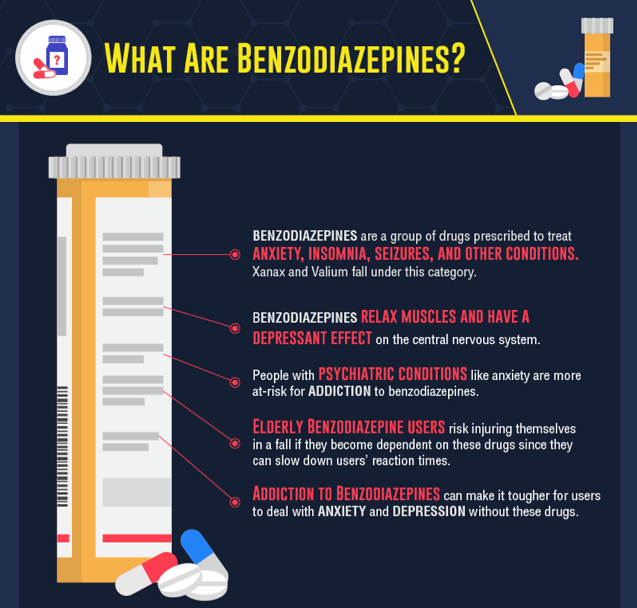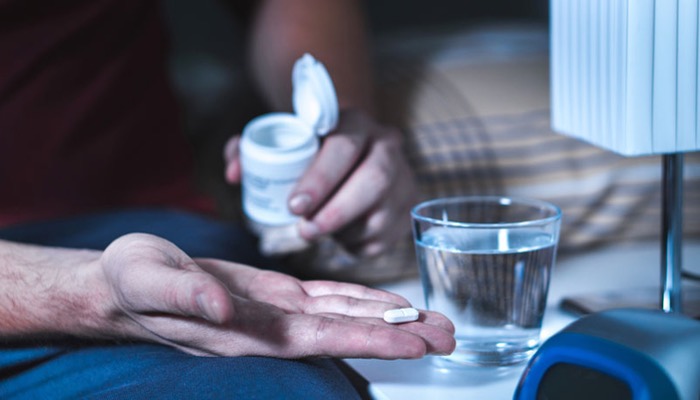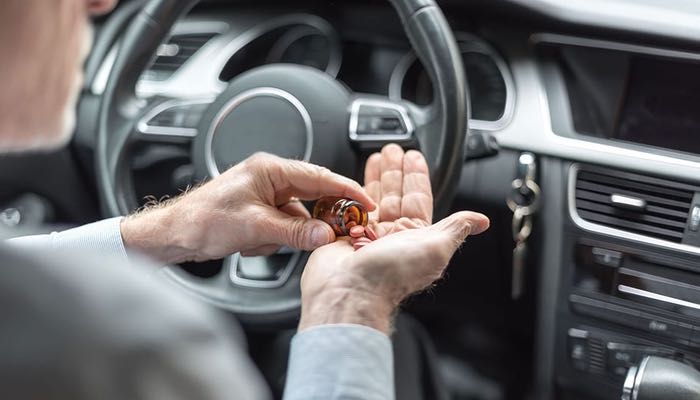Although Zopiclone is prescribed and used effectively by millions of people worldwide, there still exists a list of common side effects, as well as rare.
Each drug has its own unique set of side effects and each person’s reaction will vary to any given drug.
Zopiclone side effects are relatively rare and mild, with most cases relating to its action as a sedative.
So as a sleeping pill, Zopiclone side effects tend to include and sometimes overlap the very effects you are trying to get from the drug.
Drowsiness and memory loss are some of the commonly reported side effects of taking Zopiclone.
When we talk about side effects, or adverse reactions, of a particular drug, what we are really referring to the accumulative unwanted or unexpected events/reactions to a certain drug.
Moreover, a ‘side effect’ can be anything from a runny nose to something more severe and sustained such as a heart attack.
The truth is, there are so many variables – age, weight, gender, allergies, body’s response to drug absorption – that can influence and dictate side effects.
The FDA lists the onset of side effects from ingesting a drug when [1]:
- A new drug is first taken,
- halting the use of a drug that you have been taking for some time, and
- the sudden increase/decrease of a drug
Benzodiazepines, or benzos for short, such as Brotizolam, Estazolam, Flunitraepam, Flurazepam, Lormetazepam, and many others have been known to cause behavioural side effects [2].
The dangers associated with benzo abuse have been listed as those that can cause long-term depression and anxiety.
Many Benzodiazepines have been known to cause behavioural side effects [Dikeos et al., 2008].
Benzodiazepines such as Lormetazepam, Flunitraepam and Triazolam have been reported to cause memory impairment; in addition, triazolam use is associated with confusion, delusions, disorientations and hallucinations [12].
Let’s look at one small study where zopiclone was compared to a benzo, Triazolam.
This study recruited 75 people suffering from generalised anxiety disorder which included severe insomnia in all patients.
Patients were placed into groups where some of the participants were administered zopiclone (7.5mg), Triazolam (0.5mg) or a placebo at bed time [4].
Zopiclone outperformed the placebo drug on many sleep parameters; however, side effects were noted for the use of zopiclone and Triazolam [4].
In particular, taste perversion (food not tasting so good) was noted when patients took zopiclone.
Of importance here is that both zopiclone and Triazolam bind to the same benzodiazepine receptor, however where they differ is their associated side-effects.
Let’s look at the adverse effects of zopiclone from a scientific perspective.
That way we can better understand what kind of effect this Z-drug might have on our body.
Please remember that although most sources will state similar Zopiclone side effects, there may still exist a light difference in wording and ordering.
According to one source, zopiclone can cause any of the following side effects:
- Dizziness
- Bitter taste
- Dry mouth
- Headache
- Skin rash
- Depression
- Irritability
- Upset stomach
Other sources indicates that zopiclone induces some memory loss, hallucinations, along with feelings of sadness and helplessness – often categorised as depression.
Let’s take another look at some side effects brought on by zopiclone use, as described by NHS UK:
- feeling of tiredness
- falls (especially in the elderly)
- daytime sleepiness.
The NHS UK also recommends people to contact their doctor immediately if any of the following are experienced [5]:
- skin rash
- wheezing
- tightness in the chest or throat
- difficulties in breathing
- swelling of the mouth, lips or face.
One report by the WHO also touched upon the side effects of zopiclone [6].
This report indicated that:
10% of people experienced bitter or metallic taste in the mouth.
The report is extensive in that it categorises side effects based on ‘central nervous system effects’ and ‘other effects’[7], highlighting several important side effects such as those associated with taste, movement, psychosis and suicide [7].
Since its introduction into the market in 1986, zopiclone has been the subject of many scientific studies assessing its addictive potential.
Over the years, zopiclone has become known as a drug that does indeed harbours addictive properties.
However, because zopiclone isn’t yet a ‘mainstream’ drug – less is known on its addictive potential [11].
It is also worth noting that zopiclone has also become well-known amongst existing drug addicts [12].
Having said that, there have been several documented cases of zopiclone addiction.
In the UK, drug users are increasingly using zopiclone as a replacement for benzos since the price of street-zopiclone has decreased [12].
For this reason, one clinical review article stresses the importance of physicians being cautious when prescribing zopiclone to those who have a history of misusing drugs and alcohol [12].
Don’t drive on Zopiclone.
Seriously, don’t. And there’s research to back it up.
Lead researchers analysed and evaluated a large pool of data to determine whether or not zopiclone led to an impairment in driving performance [8].
They used 101 healthy volunteers to measure the effects of zopiclone 7.5mg.
Results showed that a statistically significant and clinically relevant driving impairment was brought on in the morning, and this was regardless of gender [8].
Interestingly, the authors of this work also mentioned that:
the effects of zopiclone 7.5mg could be compared to the feeling of having a blood alcohol concentration between 0.5 to 0.8mg/ml.
What this really means is that we should avoid ingestion of zopiclone 7.5 since it is just as likely to cause a traffic accident [8].
On a final note, the people who did this study recommend avoiding any skilled activity – work that involves some degree of thinking – and participation in traffic [8].
DO NOT mix alcohol with zopiclone.
Combining zopiclone with alcohol will induce a deep sleep that can affect your breathing pattern and cause difficulty waking. [10].
People who consume Zopiclone with alcohol have reported strange night time activities, such as sleepwalking and food consumption.
All of which cannot be recalled.
In addition, the combination of hypnotic drugs with alcohol can lead to a higher risk of depression, which may lead to suicide.
If Zopiclone is not working for you then you should first consult your medical professional to get the best advice.
Having said that, there may be some obvious reasons you are not feeling the desired effects.
The most common reason of differing effects are age.
The elderly commonly have slower hepatic and renal function, leading to a slower, longer and less intense perceived effect.
Another reason could be a mutation in the genes responsible for creating certain enzyme associated with Zopiclone pharmacokinetics (how your body processed drugs).
This would mean that the body is unable to metabolise Zopiclone into an active metabolite to cause an effect.
It’s worth noting that any sleeping pill or hypnotic drug will have residual effects that drag on into the day after, which can be very difficult to identify, since most people will wrongly assume the drug has finished.
When it comes to the side effects of sleeping pills like Zopiclone, we often overlook the seriousness of insomnia or other sleep-depriving conditions and illnesses.
Leading to a lack of general public awareness as to the side effects when misused and misinformed.
The truth is that public awareness on these matters is crucial to avoid any accidents that may occur at work, in the home and on the road [9].
[1] https://www.fda.gov/drugs/drug-information-consumers/finding-and-learning-about-side-effects-adverse-reactions
[2]https://www.researchgate.net/profile/Christos_Theleritis/publication/281626078_DG_Dikeos_CG_Theleritis_CR_Soldatos_2008_Benzodiazepines_Effects_on_sleep_Chapter_21_In_Sleep_Disorders_Diagnosis_and_Therapeutics_Edited_by_SR_Pandi-Perumal_JC_Verster_JM_Monti_M_Lader_and_SZ_Langer_/links/55f0601108ae0af8ee1d1927/DG-Dikeos-CG-Theleritis-CR-Soldatos-2008-Benzodiazepines-Effects-on-sleep-Chapter-21-In-Sleep-Disorders-Diagnosis-and-Therapeutics-Edited-by-SR-Pandi-Perumal-JC-Verster-JM-Monti-M-Lader-and-SZ-La.pdf
[3]https://www.researchgate.net/profile/Christos_Theleritis/publication/281626078_DG_Dikeos_CG_Theleritis_CR_Soldatos_2008_Benzodiazepines_Effects_on_sleep_Chapter_21_In_Sleep_Disorders_Diagnosis_and_Therapeutics_Edited_by_SR_Pandi-Perumal_JC_Verster_JM_Monti_M_Lader_and_SZ_Langer_/links/55f0601108ae0af8ee1d1927/DG-Dikeos-CG-Theleritis-CR-Soldatos-2008-Benzodiazepines-Effects-on-sleep-Chapter-21-In-Sleep-Disorders-Diagnosis-and-Therapeutics-Edited-by-SR-Pandi-Perumal-JC-Verster-JM-Monti-M-Lader-and-SZ-La.pdf
[4] https://www.ncbi.nlm.nih.gov/pubmed/2230061
[5] https://www.nhs.uk/medicines/zopiclone/
[6] https://www.who.int/medicines/areas/quality_safety/4.6ZopicloneCritReview.pdf
[7] https://www.who.int/medicines/areas/quality_safety/4.6ZopicloneCritReview.pdf
[8] https://www.ncbi.nlm.nih.gov/pubmed/24360801
[9] https://www.ncbi.nlm.nih.gov/pubmed/16862276
[10] https://www.netdoctor.co.uk/medicines/brain-nervous-system/a7792/zimovane-zopiclone/#alcohol
[11] https://www.rehabcenter.net/zopiclone/
[12] https://www.ncbi.nlm.nih.gov/pmc/articles/PMC2231551/pdf/0532124.pdf











